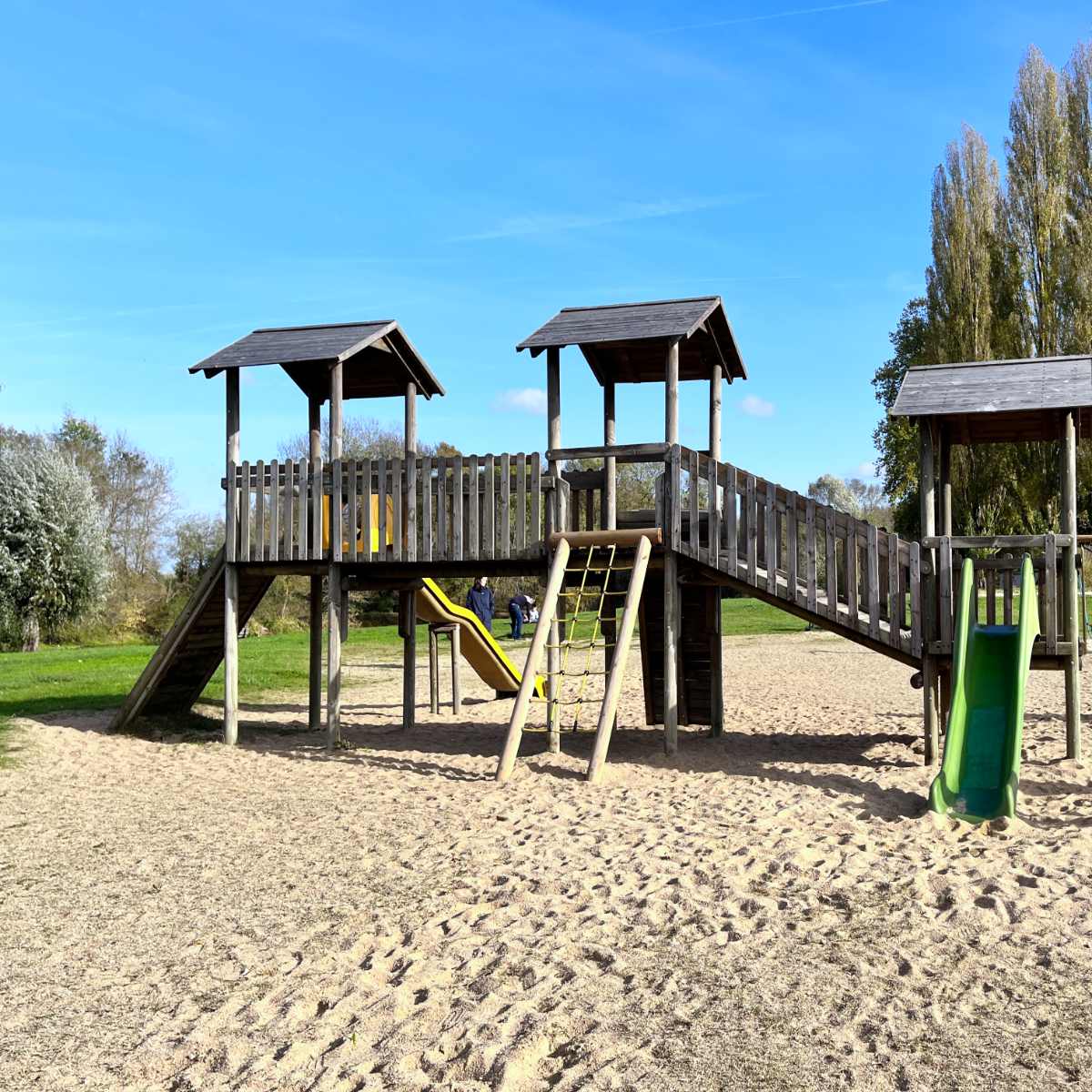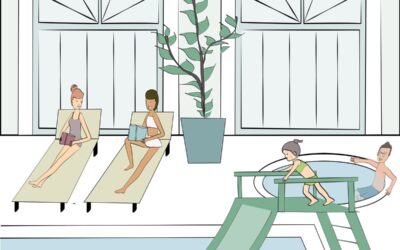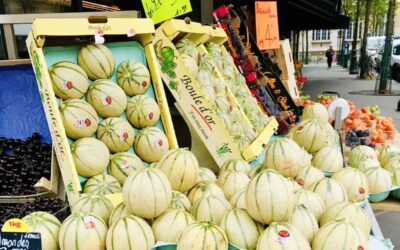If you are planning a move to France, you may start to look into the French education system if you have children. And right then, you are immediately hit with an alphabet soup of initials: CP, CM, CE1, etc.
French people refer to the school years with these acronyms, which to an outsider makes no sense at all.
In the U.S. and in France, school starts with compulsory kindergarten, then elementary school, middle school, high school, and higher education. In the US though, it is relatively straightforward, with 1st grade, 2nd grade, up to 12th grade, and graduation. Congratulations you are fully up to speed, easy peasy!
Well, the French have never found a topic that they have not managed to complexify. Pre-school and kindergarten is actually for 3 years, and just wait till you get to the primary schools and junior high.
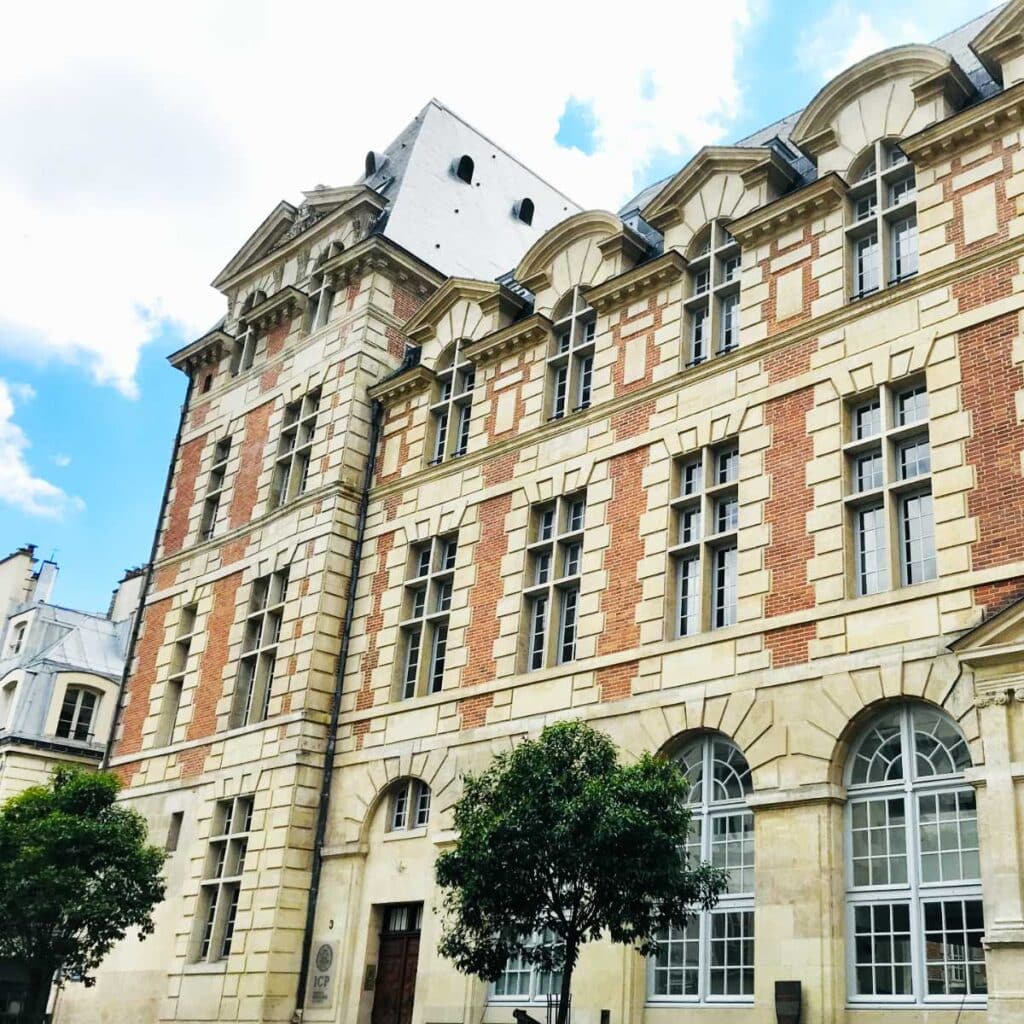
From secondary education, private schools, bilingual curriculums and vocational schools, the system is filled with acronyms and scholastic cycles that is not the easiest to decipher.
So let’s demystify the schools in France and the education system, shall we? Allons-y!
1. Overview
- The school year in France starts in September and ends the 1st week of July.
- In general, schooling is free in France.
- Parents only pay for the lunchtime canteen, as well as if they use the early morning drop-off or late evening pick-up services. These services are income-based and tax credits are available as well. The average cost is as cheap as €1-7/day.
- Parents receive aid to send their children to school for supplies, clothing, etc. Allocation de rentrée scolaire (ARS) is an income-based allocation available for children aged 6 to 18 from modest families. It is approximately €400/year per child.
- Unlike the U.K., students across France don’t wear school uniforms, at least not yet in public schools.
- Boys and girls are not separated.
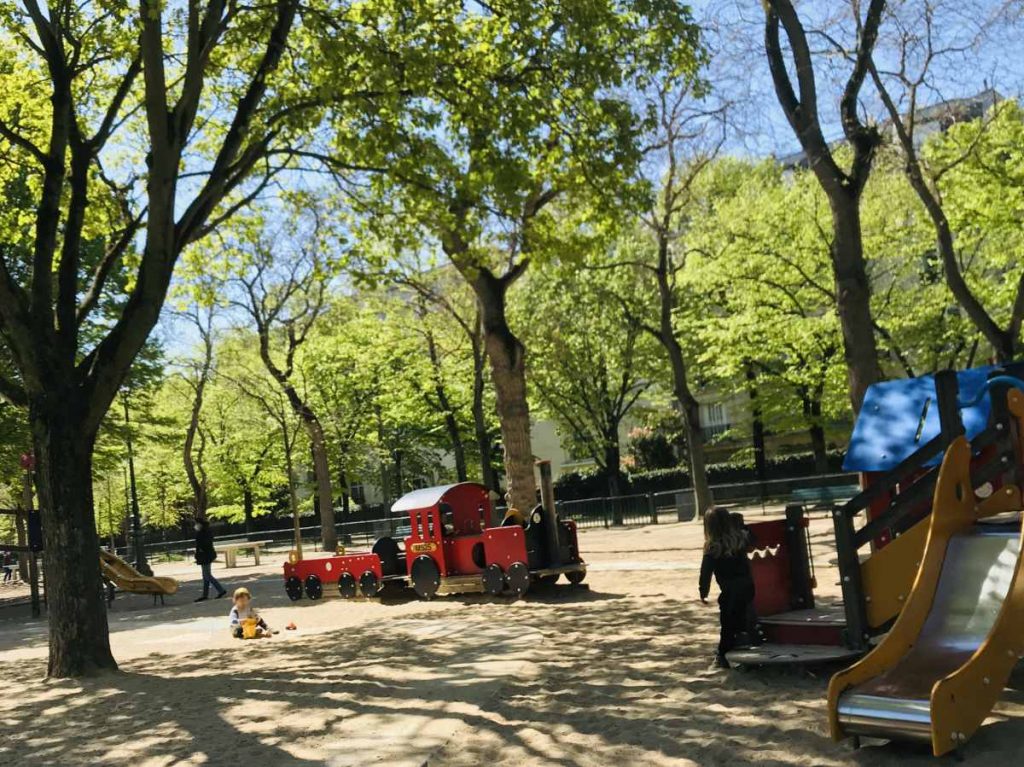
2. Preschool (Maternelle)
First off, we should note that schooling for all French children is mandatory in the calendar year the child turns 3. This means if your child is born in December, he will be entering school at 2 years and 8 months old.
Thus in the chart below, when it says “age”, it means the year that that child turned that age.
| French School Grade | Acronym meaning | Age of Child |
|---|---|---|
| PS | Petite Section (Small Section) | 3 |
| MS | Moyenne Section (Middle Section) | 4 |
| GS | Grande Section (Large Section) | 5 |
To translate into American schooling standards, Moyen Section is pre-school, Grand Section is kindergarden, and little 3 year old Petit-Sectioners would still be in nursery.
Don’t be fooled however, Petit Section in France is not just a child-care nursery. French three-year-olds learn to sing the alphabet, to count, to draw, etc.
There are a lot of nursery rhymes and french songs, before moving to poetry as they move into primary school. They also do activities with their class such as going swimming, riding a bike in the school courtyard, etc.
If there are a lot of really young children (i.e. children born at the end of the year), the town will open a TPS or Toute Petite Section for the really littles.
The first day of class is known as the Rentrée, and it is such a big deal that many offices give their employees the day off to take their (small) children to school.
School starts at around 8:30am every morning and continues until 4:30pm. There is a 2-hour break in the middle of the day for lunch and recreation.
Lunchtime canteen
Lunch time is considered part of schooling, and French schools take it quite seriously. No picky eaters allowed here. From a young age, children are introduced to a wide variety of healthy meals and taught to try everything.
If the child has an allergy, the parents have to get a PAI from the school doctor authorizing them to send lunch with the child. Some schools also allow parents to pick up children for lunch to eat at home. Here is a maternelle and primary school sample menu:
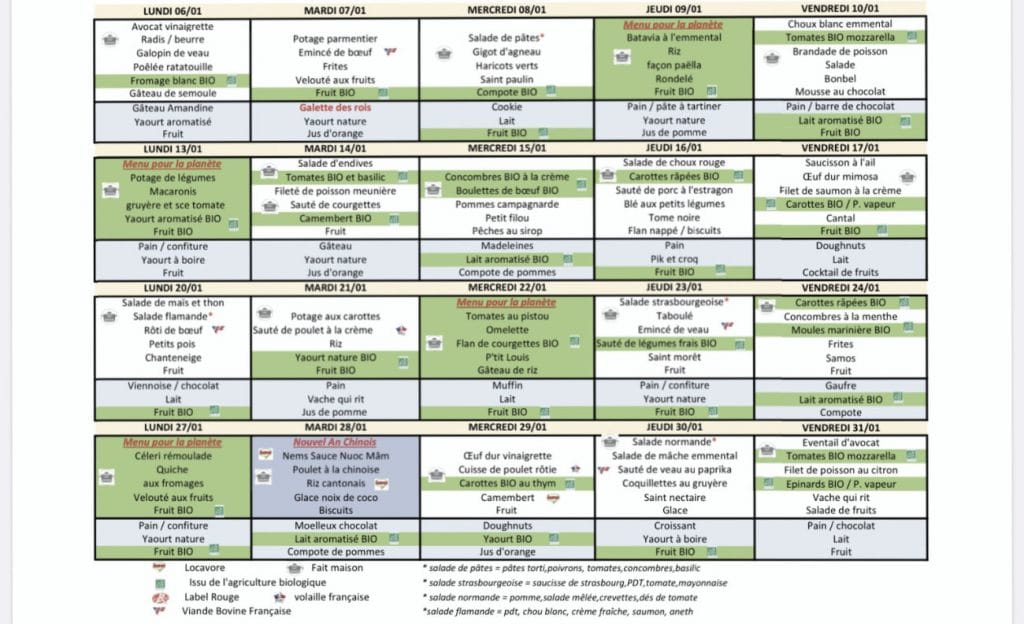
☞ READ MORE: French food that all kids will love
Arrangements on Wednesdays
Most preschool and primary school students don’t have school on Wednesdays. It is supposed to be the day for extra-curricular activities, to rest, etc. There was a move in 2018 by the government to insist on Wednesday morning classes, however, the teacher unions and parents protested.
This led to some towns having school on Wednesday mornings and reducing hours on other days, while other towns did not.
For working parents who cannot keep their children home each Wednesday, or pick their kids up at 4:30pm, there are the leisure centers.
Each town offers a centre de loisirs (activity and leisure center), where parents can drop off their children on Wednesdays at a minimal cost that is based on income levels. In real terms, the cost is around €5-20/day including lunch.
These leisure centers are in the same school that the child attends, with animateurs watching the kids and proposing a variety of activities. These leisure centers are also open in the mornings for parents who need to head to work early in the morning.
These centre de loisirs hold a variety of craft activities, sports, dance, and other programs based on the age of the child. They also sometimes do field trips to nearby farms, the cinema, museums, etc.
English instruction
Most public maternelles in France start a dose of English instruction, about 45 minutes once a week. This can vary however from school to school.
It can also depend on whether a dedicated English teacher can be found, and the regular teacher’s ability to speak English.
Grading
All the children get a report card twice a year, at half-term before the Christmas holidays, and at the end of the year in June.
Parents must give their approval for child to move up a grade. At the end of each year, parents receive two forms for the Poursuite de Scolarité. The first form is the Proposition du conseil des maîtres with the decision of teacher and school to either promote the student or keep him/her behind. Parents have a few days to approve or appeal the decision.
A few days after that, parents will get a 2nd form with la décision of Conseil des maîtres. This decision can then also be approved or appealed by the parents to the Appeals Commission and the School Board. You can read more about French preschools here.
3. Homeschooling
Homeschooling used to be legal in France, but its usuage was significantly restricted in 2022. Consequently, parents desiring to homeschool must now obtain prior authorization.
The authorities will consider only one of four specific reasons for permitting homeschooling:
- The child’s health or disability
- The child’s dedicated involvement in a sport or artistic pursuit
- If the family is traveling and not located at a fixed domicile in France.
- A unique situation specific to the child justifying an alternative educational path.
Despite these stringent regulations, Les enfants d’abord, a French national organization advocating for home-educating families, is actively challenging and opposing this new law.
The Mairie in your town will require you to make an annual declaration, as will the rectorat (school inspector). Parents must cover roughly the same curriculum as a French school.
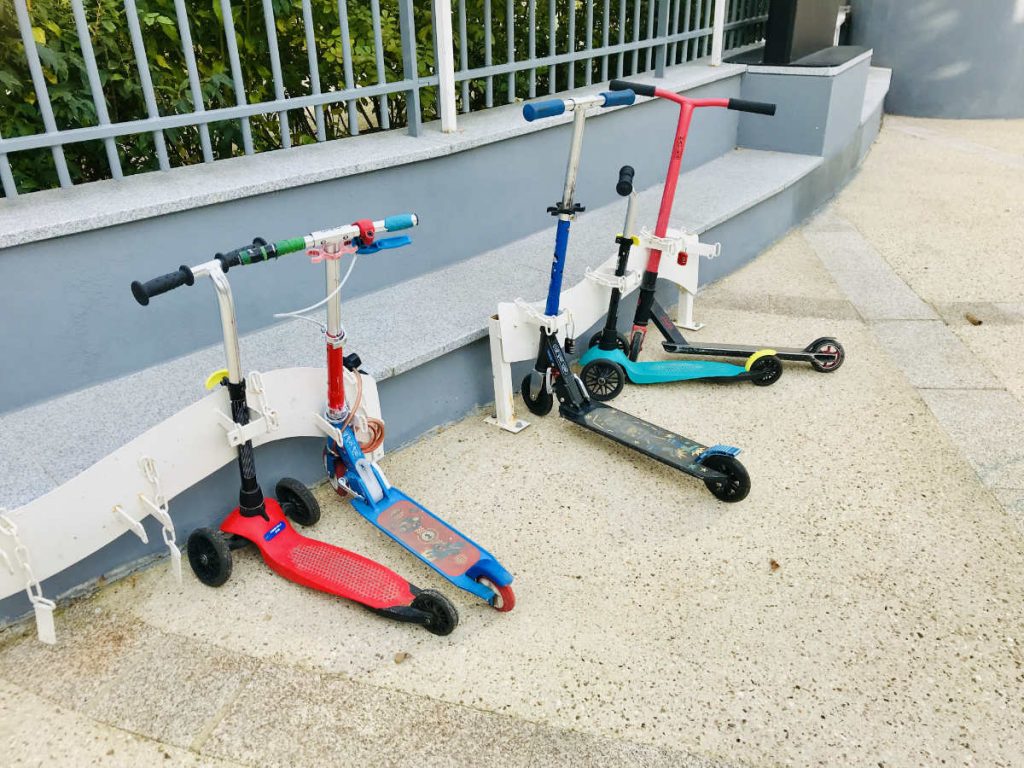
4. Primary school (École primaire)
The French primary school operates on cycles. Maternelle is the first cycle, and from there CP to CE2 is the 2nd cycle where children are expected to learn the fundamentals.
| French School Grade | Acronym meaning | Age of Child |
|---|---|---|
| CP | Cours préparatoire (Preparatory course) | 6 |
| CE1 | Cours élémentaire 1 (Elementary course) | 7 |
| CE2 | Cours élémentaire 2 (Elementary course) | 8 |
| CM1 | Cours moyen 1 (Middle course) | 9 |
| CM2 | Cours moyen 2 (Middle course) | 10 |
Handwriting still matters in France. Kids in maternelle are taught to draw in boucles (curls) and by CP they are taught to write in cursive. Students are expected to master the cursive and write beautifully.
Along with beautiful handwriting, la dictée (dictation) is also a big part of French learning. Unlike English, French is a language with a lot of accents and hidden sounds and accords. As such, learning to write with the teacher dictating a paragraph of French literature is part of the culture.
Along with dictation, students study classic French poets and their most famous poems in school, and at times are expected to be able to memorize it and recite it in class. The idea is to listen to understand “the diversity of language”. You can read some examples of French poetry for kids here.
As they get older, they start to move from having one teacher for all the subjects, to specialized teachers for each subject. Similar to other countries, the emphasis is on reading, writing, maths, science, language, etc.
In the 3rd cycle, from CM1 to the 1st year of Middle school, the emphasis is on “consolidation of knowledge”.
Study Hall
Starting in primary school, children are offered an accueil des études (study hall), where they can do their homework afterschool while waiting for their parents. It usually lasts an hour, after which they can join the regular centre de loisirs.
There are two types of study hall, étude surveillée and étude dirigée. Etude surveillée is supervised study hall, where the child works somewhat independently on their homework, rather than waiting to get home to do it.
Etude dirigée, on the other hand, is more of a directed study hall for students in difficulty, who would benefit from small class size and more personal attention. The type of study hall offered depends on the school.
☞ READ MORE: Top French books for Children (by age)
Fieldtrips
Beyond classroom learning, students are offered Class Verte or Classe Blanche, which are experiences outside the classroom.
In Classe Verte (green class) is exploring the countryside, with activities such as hiking, canoeing, horseback riding, etc.
Classe Blanche (white class) is usually for skiing and snow-related activities. Students who live the French Alps usually also have day trips to nearby ski resorts in winter as part of their schooling.
These classes are usually in primary school, but are also sometimes offered for Grand Section in maternelle or middle school students. These can be daytrips or overnight trips over 1-3 weeks, where the entire class is expected to participate.
The teacher accompanies the trip with regular lessons in the morning, and the afternoon used to concentrate on the physical activities.
Foreign Students
Foreign students who don’t speak French are provided a teaching assistant through Français Langue Etrangère (FLE).
In addition, children who have learning or physical disabilities are provided special assistants to help them navigate the system (Services d’éducation spéciale et de soins à domicile).
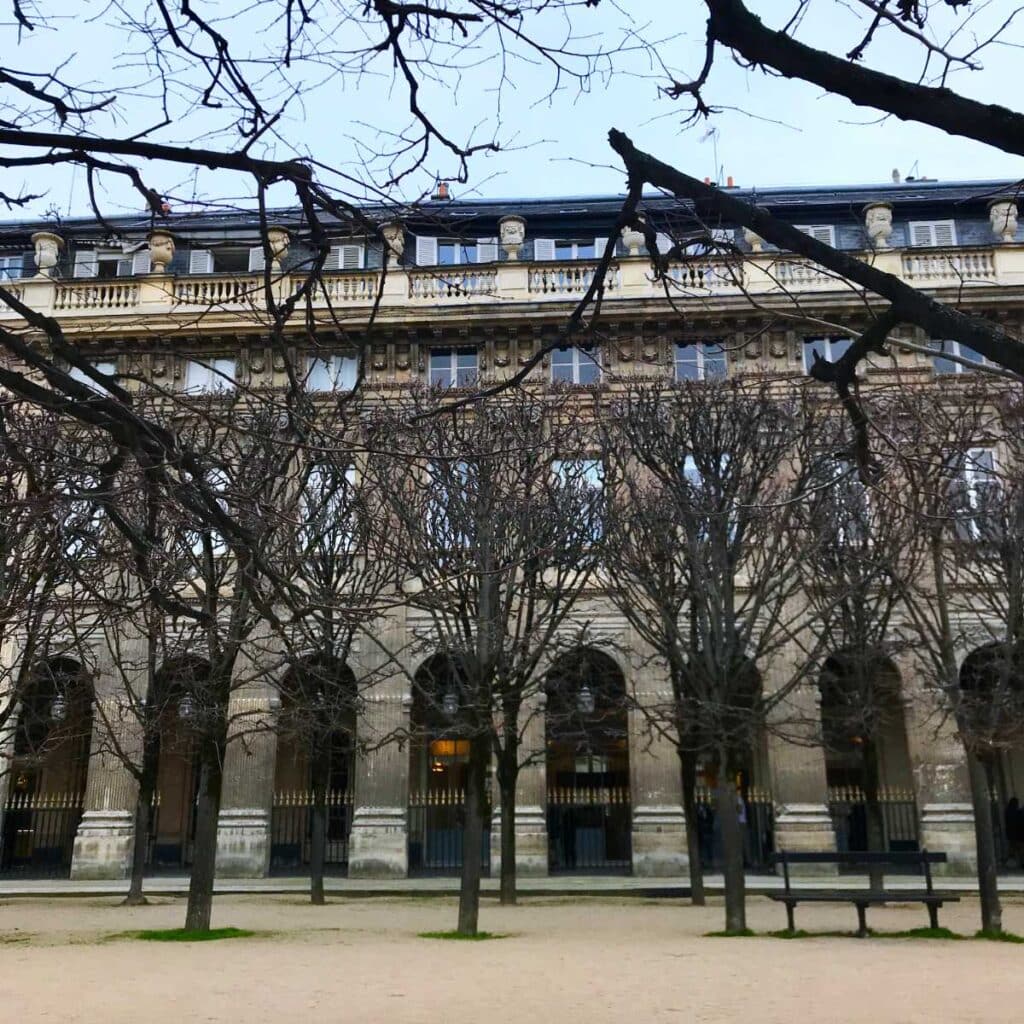
5. Middle school (Collège)
Collège in French is not “college of higher education” as we know it in North America, but actually middle school. Here finally the French drop the acronyms and the U.S. equivalent of 6th grade is the sixème (6ème) in France.
| French School Grade | U.S. Equivalent | Age of Child |
|---|---|---|
| 6ème | 6th grade | 11 |
| 5ème | 7th grade | 12 |
| 4ème | 8th grade | 13 |
| 3ème | 9th grade | 14 |
In junior high (collège) and secondary school (lycée), the schedule is much more variable depending on the school. Older middle school and high school children will have varying hours at school based on the classes they are taking.
Some schools have classes on Wednesday, for a 1/2 day or full day, while others even have classes and exams on Saturday mornings.
Applying to Middle school
Not all middle schools offer a full range of courses, so French students apply to get into the middle school of their choice.
School years 5ème to 3ème are part of the 4th cycle of French education, known as the deepening cycle.
Languages
In 6ème, students pick one of two foreign languages that they will study through the rest of their scholastic career. Known as Langue Vivante 1 (Living language 1), the most common languages chosen are English, German, Spanish or Italian.
The following year, in 5ème, they will pick the 2nd language, known as Langue Vivante 2, amongst the choices offered at their middle school.
Grading
Starting in collège, the French grading system becomes quite hard. A 12 out of 20 is considered a pretty decent mark. Unlike North America, where a good portion of the class is expected to be in the 70%-90% range, this is not the case in France.
Redoublement, meaning to redoing the scholastic year, is not uncommon in France. In addition, there is no social stigma to doing so. This is especially the case for the scholastic years that are at the end of a learning cycle (in CE2, 6ème, 3ème).
A child will be held back if he cannot demonstrate the necessary competence in that cycle. The idea is to have the student catch up before he gets any further.
Brevet
At the end of 3ème, French students must pass an exam known as the brèvet, which includes testing on French, mathematics and other subjects. It is an important test, but not an important test, as everyone is expected to pass the brèvet.
Middle schools are judged on their ability to get their students to pass the Brèvet, so French families will often decide what neighborhood and what school to send their children to, based on the brèvet results.
☞ READ MORE: Top French comics for the young and young at heart

6. High school (Lycée)
The 5th cycle of the French school system is the lycée and it is all about preparing French students for the future.
| French School Grade | U.S. Equivalent | Age of Child |
|---|---|---|
| 2ème | 10th grade | 15 |
| 1ère | 11th grade | 16 |
| Terminale | 12th grade | 17 |
Applying to High school
The courses offered at the high school will be based on the type of high school diploma that the student is working towards. After the brèvet at the end of middle school, students must apply to one of 3 types of high schools:
| Type of High School | Lycée (High School) Degree |
|---|---|
| Lycée General | BAC General |
| Lycée Technique | BAC Technique |
| Lycée Professionnel | BEP (Brevet d’enseignement professionnel) / CAP (certificat d’aptitude professionnel) / BAC Professionnel |
Boarding Schools
While boarding schools are common in other countries like the U.K., they are not common in France, especially in big cities. However, in the French countryside where the closest middle school or high school may not offer all the classes the student would like, boarding schools are available.
These schools are called internats, and offer a variety of options such as full days with meals, overnight stays, etc.
Field trips
High school students are also offered trips in France and around the world, depending on the town’s resources. Recent trips in high schools in Paris have been to China, India, New York, etc.
BAC Exams
At the end of high school, students must sit the BAC. The BAC is similar to the American SAT, in that it is a nationwide exam that all French students must pass to move on to higher education.
While the SAT is usually one exam, the BAC is a series of exams over several days in a variety of subjects, depending on what the student has chosen.
Unlike the U.S. or U.K., one of the subjects that is mandatory in France is philosophy. It is obligatory in the final year of high school, to emphasize “the learning of freedom through the exercise of reflection”.
The first exam in the BAC series of exams is always philosophy. Here is a recent question from that exam:
Est-il possible d’échapper au temps ? – Is it possible to escape time?
Essay Question on BAC exam
The official grading for the BAC shows at what point the student can earn a “mention”:
| Mention | English Translation | Grade out of 20 |
|---|---|---|
| Assez Bien | Somewhat good | 12.0 – 13.9 |
| Bien | Good | 14.0 – 15.9 |
| Très Bien | Very Good | 16.0 – 17.9 |
| Très Bien avec félicitations du jury | Very Good with congratulations from the jury | 18.0 – 20 |
There are also several technical diplomas for high school students who specialize in technical areas such as the Brevet de technicien supérieur (BTS) or Le brevet des métiers d’art (BMA), etc.
☞ READ MORE: Facts about French schools
7. International Language Sections
All throughout the schooling system, from maternelle to high school, there are International sections with options such as American English, British English, Dutch, Arabic, Japanese, etc. working towards the International Option Baccalaureate (OIB).
These international sections allow students to study certain subjects in a foreign language of their choice. Both French and foreign students can apply to them, but in cities like Paris, the competition is tough. (The earlier the child applies in their scholastic career, the easier the chances are to get in.)
The workload in the “other language” is on top of the regular French workload, and the chances of the student getting in depends on their high scholastic abilities as much as their fluency in the other language.
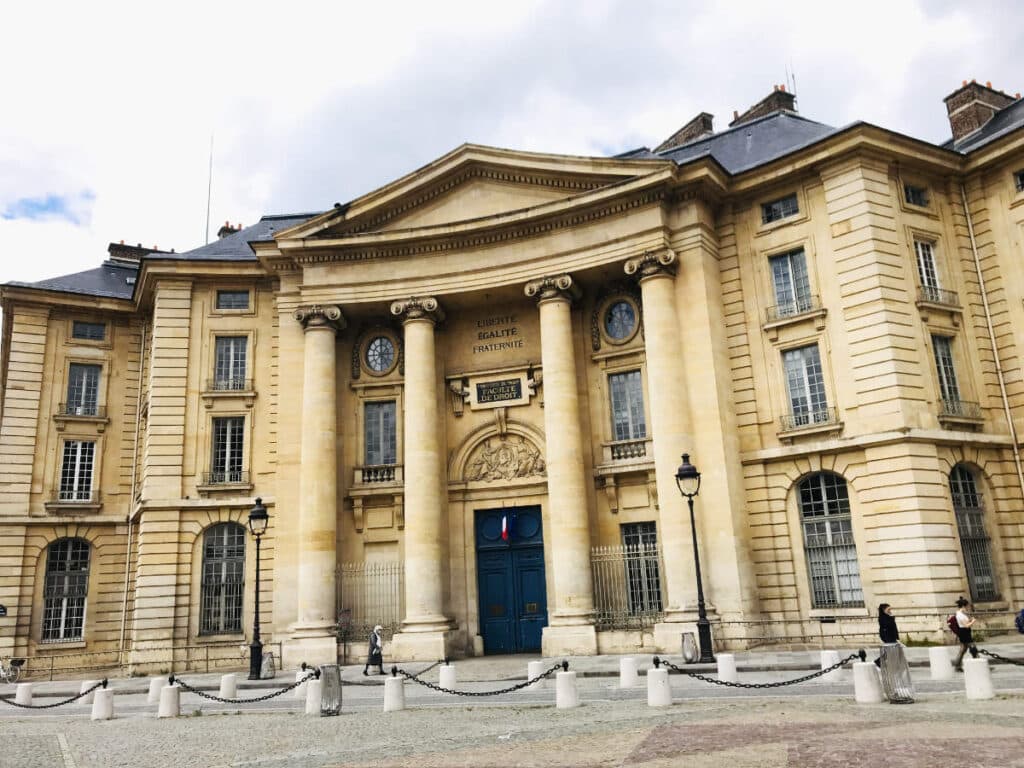
8. Universities and Higher Education
Once students have their BAC in hand, they are able to apply to a series of public universities and institutions across France. When you see job applications in France, they will refer to having “Bac +5” etc. This means that the person completed studies for 5 years after the Bac, meaning that they have 4 years of university and a Master’s degree.
Universities are generally free in France and every French student is guaranteed a spot somewhere, along with a student bursary from CAF (a govt department).
More interestingly, some schools like the National School of Public Administration ENA, actually pay the students a stipend of around €1700/ month to attend. Competition is tough to get in, and students are required to work for the government for 10 years after graduating, or they pay those funds back.
Grandes écoles
The best students, however, will aim to get into one of the grandes écoles. These schools are quite exclusive, and the equivalent of the American Ivy League.
Students don’t get in immediately after high school but spend 2 years doing private courses known as “preparatory classes”, or prépas, so they can sit for an entrance exam (concours).
Entrance into one of the Grandes écoles is meant to grant the student a surefire job and a high flying career.

So is the French school system similar to schooling where you are from? If you enjoyed that article, you may enjoy reading more about living in Paris. A bientôt!
